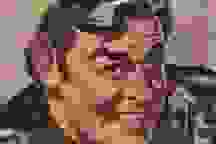Dear Friends of eMerge,
Welcome to the Winter edition of eMerge, your gateway to a world of captivating literary expression. It is our pleasure to introduce you to an issue brimming with exceptional works that showcase the talent and creativity of our contributors. This edition is particularly special, as it features contributions from six outstanding nominees for the prestigious Pushcart Prize and winners of the Woody Barlow Poetry Contest.
The writers and poets whose works grace these virtual pages have poured their hearts and souls into their creations, and we are delighted to share their voices with you. From thought-provoking essays to evocative poetry, each piece has been carefully selected to offer a diverse and enriching reading experience. So, whether you are curled up by the fire or watching the tide roll away, relax and enjoy our latest offerings on eMerge.
In addition to celebrating the artistic achievements within these digital pages, we are thrilled to announce that eMerge is now a 501(c)(3) charitable organization. This exciting development means that your generous contributions to eMerge are now tax-deductible. As we continue to grow and support the literary community, your donations become an integral part of our ability to provide a platform for emerging voices and established talents alike.
If you are passionate about fostering creativity, supporting writers, and contributing to the literary landscape, we invite you to consider making a tax-deductible donation to eMerge. Your support enables us to maintain our commitment to excellence and to elevate the voices of writers who inspire, challenge, and enrich our understanding of the world.
To make a donation and explore the various giving options, please visit our donations page at https://donate.stripe.com/. Your support, no matter the amount, goes a long way in sustaining eMerge and ensuring the continued success of our mission.
Pushcart Nominees for 2024:
Linda Reising for her poem, This is Not a Symbolic Poem About Cicadas, challenges the notion that cicadas are overused symbols in poetry and offers a fresh perspective on these insects. The poem successfully challenges the conventional view of cicadas as cliché symbols. The concluding lines bring a touch of irony by suggesting that the female bugs are patiently waiting for "Mr. Right" after seventeen years. This twist adds a layer of commentary on the cyclical nature of life and relationships, contrasting with the initial rejection of cicadas as mere symbols of memory and rebirth.
Bill McCloud for his poem, Black Carnations, successfully weaves together symbols that add layers of meaning and depth to his narrative. The poem captures a sense of mystery and nostalgia but leaves room for interpretation and reflection. After reading Black Carnations several times, I am always left wanting to know more about this mysterious woman.
Barbara Carlson for her poem, His Sign Asks for Water, employs strong imagery and symbolism to convey the emotions and experiences of a homeless man. The image of the rain and the man soaking in it becomes a metaphor for spiritual nourishment. When I think about the approximately 100,000 homeless veterans on the streets, Barbara’s theme of seeking solace and spiritual connection in difficult circumstances is poignant to this old Marine.
Toni Huffman, whose pen name is Antonia Love for her poem, Two Men and a Truck, evokes images of moving out with imagery like, “knick-knacks,” “newspapers,” and “grocery store boxes.” Toni effectively communicates the emotional journey of the speaker, from the pain of the breakup to the sense of liberation and optimism of the future.
Zhenya Yevtushenko for his poem, Names I will Learn Soon/Buffalo, Uvalde, Tulsa, …delves into the emotional aftermath of a mass shooting, capturing the juxtaposition of personal and communal experiences. The mention of walking the dog after such a tragic event adds a layer of intimacy and humanity to the narrative. The questions posed, particularly "who pulled the trigger and who pulls the trigger inside?" prompt introspection on a broader societal level, addressing both the external and internal aspects of violence.
Elaine Alarcon for her poem, In the Santa Barbara Botanical Garden, captures a vivid and contemplative experience in nature. The imagery is rich, and the poet successfully conveys a sense of connection with the environment. The use of specific details, such as the orange poppies, cactus flowers, and giant boulders, enhances the sensory experience for the reader. The poem's exploration of time and history through the journey of a lone ant adds depth and complexity to the narrative. The references to historical events and milestones, from the Magna Carta to the Declaration of Independence, create a broader context for the ant's journey, connecting it to the larger human experience and the passage of time.
Thank you for being a cherished part of the eMerge community. We hope you enjoy the literary feast that awaits you in this edition and look forward to your continued support.
Joy Clark, Editor
[email protected]
Charles Templeton, Editor Emeritus
[email protected]












